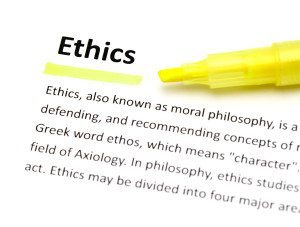 With last week’s post on patent attorney Andrew Schroeder, who ran amok in his filings with the USPTO (click), fresh on my mind, I had to chuckle at the blog posted recently in Wordrake (click here), entitled: “Your Honor, You Are Stupid, You Suck, Please Decide For Me.”
With last week’s post on patent attorney Andrew Schroeder, who ran amok in his filings with the USPTO (click), fresh on my mind, I had to chuckle at the blog posted recently in Wordrake (click here), entitled: “Your Honor, You Are Stupid, You Suck, Please Decide For Me.”
The post cites several examples of what is purported to be real arguments made in a real case. According to the post, parties were litigating a civil case involving a lien on clothing in a warehouse. One of the litigant’s in the action allegedly argued that:
Importer’s conduct in negotiating the ‘purchase’ of these alleged liens was based on the syllogism employed by many Middle Eastern terrorists with a penchant for seizing airliners and their passengers to secure the righting of what they perceive to be wrongs.
Another passage in the brief (according to Wordrake) compared the defendant’s actions to, “economic sodomy.” Since I did not know what that phrase meant, I contacted a proctologist friend for clarification. He had not heard of the term in the medical literature. We both agreed that whatever “economic sodomy” means, it sounds painful.
The author of the blog correctly points out that such hyperbole is not effective advocacy and, if anything, will cost the brief writer credibility with the tribunal. True enough as far as it goes. That conclusion is certainly supported by the recent Sixth and Seventh Circuit decisions.
Don’t Compare Your Opponents To Terrorists
Comparing the purchase of a lien on some clothing to Al-Qaeda’s murder of thousands of Americans is not mere “ineffective advocacy.” That is too kind. By any objective measure, the argument was highly inflammatory, insensitive, disrespectful, and just plain stupid.
From a standpoint of ethics, such grossly ineffective “advocacy” raises issues about the practitioner’s competence under ABA Model Rule 1.1 or the equivalent rule governing practice before the USPTO codified at 37 C.F.R. Section 11.101. Furthermore, when a lawyer pens vitriol as a fiduciary on behalf of a client, which he or she then files with a tribunal, one might ask if such a filing withstands scrutiny pursuant to the lawyer’s ethical duty of fairness to an opposing party.
As far as ethics are concerned, no apparent analytical difference exists between directing a hate-filled filing at the conduct of a patent examiner, like former patent attorney Schroeder from our last post, or comparing the opposing party to a 9/11 terrorist. Neither is effective. And depending on the jurisdiction, over-the-line “advocacy” can lead to sanctions and the possibility of professional discipline.